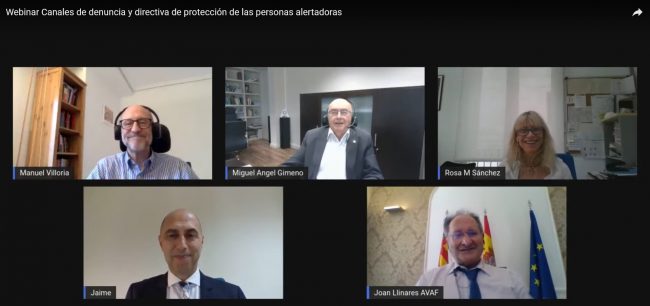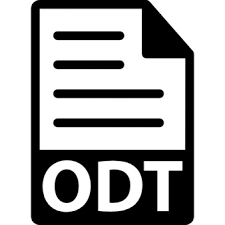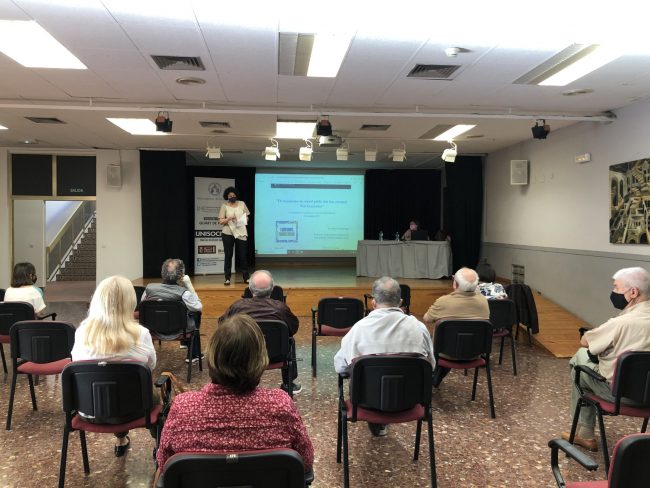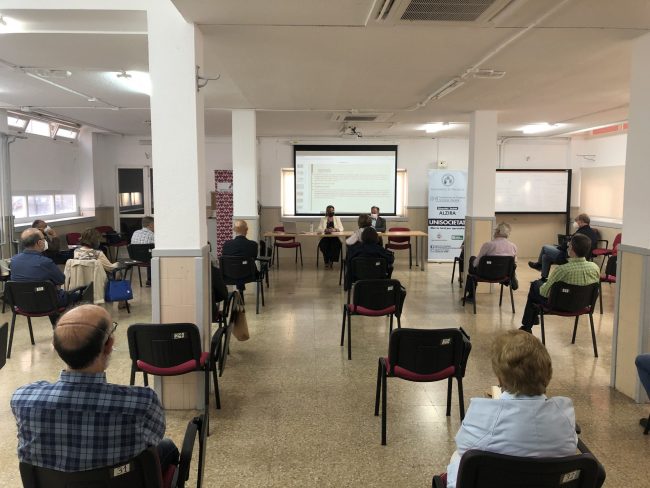Anti-fraud agencies and offices demand a State Anti-Corruption Strategy
València, June 11, 2021.- The Anti-Fraud Office of Catalonia, the Office for the Prevention and Fight against Corruption of the Balearic Islands, the Ethics Mailbox of the Barcelona City Council and the Valencian Anti-Fraud Agency have requested the elaboration of a State Fighting Strategy against Corruption during the course of a webinar held jointly by all the offices.
National anti-corruption strategies is a tool that was already included in the United Nations Convention to Combat Corruption in 2003, which was ratified by Spain in 2006 and, in fact, Spain is one of the few countries that it lacks such a strategy.
The agencies and offices make this request since the Ministry of Justice is currently carrying out the transposition into the Spanish legal system of the European Directive 1937/2019 for the protection of whistleblowers and whistleblowers of corruption.
It is therefore a good opportunity to take advantage of this transposition work to develop a State Strategy to Fight Corruption, for which the agencies and offices offer themselves to the Ministry to contribute their knowledge and experience in this matter.
In the webinar, the channels and mailboxes for internal and external complaints that will be mandatory with the entry into force of the Directive both for companies with more than 50 workers as well as for all administrations and public bodies have been announced.
The webinar was moderated by Manuel Villoria, Professor of Political Science and Administration of the Rey Juan Carlos University of Madrid, and the Director of the Balearic Office, Jaime Far; the Director of the Catalunya Office, Miguel Ángel Gimeno; the Director of the Barcelona City Council Ethics Mailbox, Rosa María Sánchez and the Director of the Valencian Agency, Joan Llinares.
The recording of the webinar is available on the channels of the Valencian Anti-Fraud Agency of
YouTube: https://www.youtube.com/watch?v=wt8GwdQZskc
Ivoox (podcast): https://www.ivoox.com/webinar-sobre-canales-buzones-denuncias-audios-mp3_rf_71266011_1.html
Fecha de publicación:





